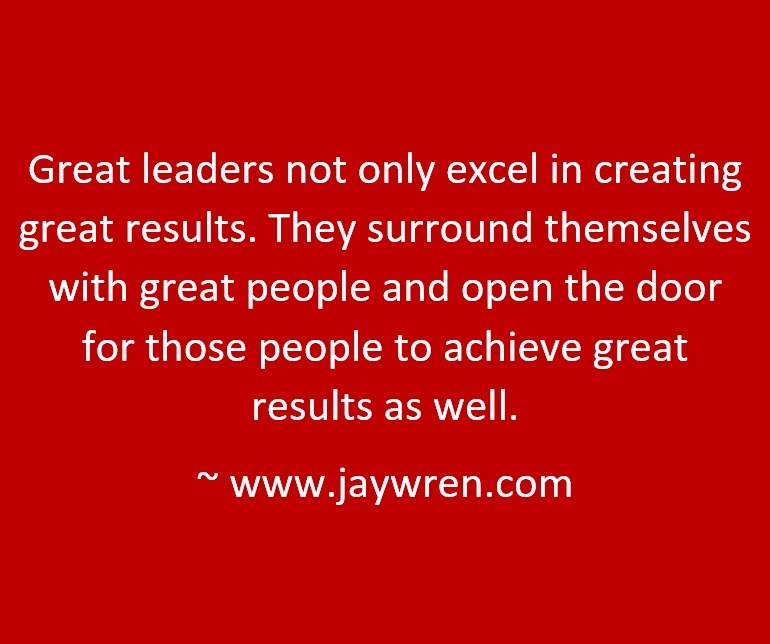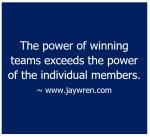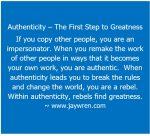Great Leaders: Some leaders are not only great themselves, but also inspire others to become great. What do they do differently?
Great leaders do more than achieve success. They create greatness in others. ~ www.jaywren.com
Great Leaders: 7 Steps to Creating Greatness in Others
Some leaders have command presence. Colin Powell is an example of a person whose outward behavior or bearing commanded respect. Other leaders have charisma. President John Kennedy had the magnetic ability to draw attention by merely entering a room. Then there are leaders like Winston Churchill who can shape the language to persuade and inspire nations.
These leaders in their own ways achieved personal and professional greatness. But what are the traits that of leaders who inspire greatness in others?
1. Give Credit
Leaders who have the humility to give credit gain support from their people. They allow others to take the center stage.
They step back from the urge to say, “I did this.” They step up to say when the team or a member of the team created success.
Furthermore, they encourage positive behavior with positive reinforcement. Inspirational leaders are not afraid to say, “You did an excellent job.”
Giving credit increases bonds and reduces turnover.
2. Use Criticism to Train
It is easy to criticize people. However. great leaders do more than find fault. They give solutions. Furthermore, they train their people the correct way to do things in the future.
3. Build the Skills and Knowledge of the Team.
It takes time and patience to train team members. Leaders who invest this time to show team members new and better ways of doing things increase the success of the individual members of the team and increase the success of the entire team.
4. Delegate Authority as Well as Responsibility.
As soon as he was given the proper support and appropriate work for his strengths, he grew less apathetic and at least gave a good day’s effort. Teaching people their responsibilities is one thing. Giving people the authority to make decisions on their responsibilities is another. Great leaders delegate authority as well as responsibility.
Delegating authority empowers people to make the team more powerful. Furthermore, it engages the team to be more effective.
Lastly, it creates ownership and builds the self-esteem of team members.
5. Focus on the Big Picture
Great leaders don’t let small frustrations to become major distractions. They adjust. At times of distraction, that refocus themselves and the team on the goal. However, they don’t let these frustrations waste their time.
6. Practice Integrity and Honesty
Successful leaders keep commitments. Their people can trust them in every area. They make meetings on time. They deliver on promotions and pay raises.
Their people can trust them to manage confidential discussions discretely and to tell them. On the other hand, great leaders are transparent to ensure integrity.
Through integrity and honesty, great leaders inspire commitment from the people they lead.
7. Avoid Leadership Resentment
For leaders to develop respect from their people, leaders can’t tell their people to be frugal while the leaders are extravagant. Successful leaders can’t press their people to work hard when the leaders themselves are out the door early for personal activities.
Telling people to act one way while the leader abuses authority to act another, creates resentment towards leadership and towards the leaders themselves. Great leaders avoid leadership resentment through their own example.





